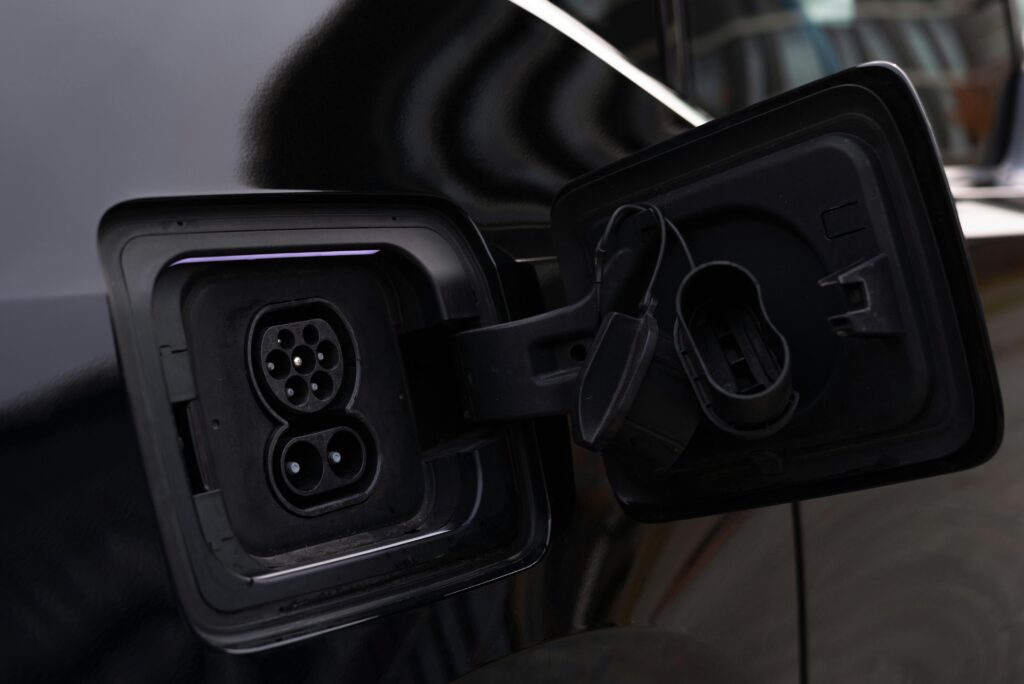Electric vehicles (EVs) are quickly becoming mainstream in the United States. With tax incentives, lower running costs, and eco-friendly appeal, more Americans are making the switch. But one question almost every new EV owner asks is: “How much does it cost to install an EV charger at home?”
The answer depends on several factors, including charger type, installation complexity, and your home’s electrical setup. Let’s break it down step by step.
1. Types of EV Chargers:
EV chargers come in three main levels:
- Level 1 Charger (120V outlet)
- Usually comes free with the vehicle.
- Plugs into a standard household outlet.
- Adds 3–5 miles of range per hour.
- Installation Cost: $0 to $300 (if outlet upgrade is needed).
2. Level 2 Charger (240V outlet)
- Most popular choice for US homeowners.
- Adds 20–60 miles of range per hour.
- Requires a 240V dedicated circuit.
- Charger Cost: $400 to $1,200.
- Installation Cost: $500 to $2,000, depending on wiring and panel upgrades.
3. Level 3 / DC Fast Charger
- Commercial-grade; rarely installed at home due to high power needs.
- Adds 100–250 miles of range in 30 minutes.
- Equipment Cost: $15,000 to $40,000.
- Installation: $20,000+.
- Better suited for businesses, not homeowners.

2. Average Installation Costs in the US:
For most homeowners, the Level 2 charger is the sweet spot. On average:
- Charger unit: $800
- Labor: $1,200
- Permits & inspection: $100–$300
- Total Average Cost: $1,500 to $3,000
If your home already has a 240V circuit near the garage, costs can be much lower. But if your electrical panel needs an upgrade, expect to pay $2,500–$4,000.
3. Factors That Affect Costs:
- Electrical Panel Capacity – Older homes may need a panel upgrade.
- Distance from Panel to Charger – Longer wiring runs = higher labor cost.
- Permits & Codes – Some states/cities require permits and inspections.
- Smart Features – Wi-Fi enabled chargers can add $200–$500.
- Utility Rebates – Many US states (like California, New York, and Colorado) offer rebates that reduce costs by up to 50%.
4. Long-Term Savings:
While the upfront cost may seem high, installing a Level 2 charger at home pays off:
- Cheaper than public charging.
- Convenience of overnight charging.
- Increases home value (according to Zillow, homes with EV chargers sell faster).
EV Charger Installation Incentives in the US:
The good news? The US government and many utility companies offer rebates and tax credits:
- Federal EVSE Tax Credit: 30% of cost (up to $1,000).
- State rebates: California, New York, Colorado, and others provide $500 – $1,500 rebates.
- Utility company programs: Some offer discounted rates for charging at night.
Q&A: EV Charger Installation Costs:
Q1: What is the cheapest way to charge an EV at home?
A: Using the free Level 1 charger with a standard outlet, though it’s very slow.
Q2: How much does it cost to install a Level 2 charger?
A: On average, $1,500–$3,000 including equipment and labor.
Q3: Do I need a permit to install an EV charger?
A: Yes, most US cities require a permit and inspection for safety compliance.
Q4: Can I install an EV charger myself?
A: Level 1 chargers can be self-installed, but Level 2 requires a licensed electrician.
Q5: Does installing an EV charger increase home value?
A: Yes, many US buyers see it as a premium feature, especially in EV-friendly states.
Is It Worth Installing an EV Charger at Home?
✅ Convenience: Charge overnight, no waiting in line at public stations.
✅ Long-term savings: Charging at home is cheaper than public fast charging.
✅ Property value boost: Homes with EV-ready garages attract buyers.
Key Takeaway:
- Level 1: Free, but slow.
- Level 2: $1,200 – $3,000 (most homeowners choose this).
- Level 3: Not realistic for homes.
- ROI: With federal and state incentives, costs can drop by 30–50%
Conclusion:
Installing an EV charger at home can seem expensive at first, but it’s a smart long-term investment. Not only does it save you time compared to public stations, but it also adds value to your property and ensures daily convenience. With rebates and incentives available, the upfront costs can often be reduced significantly.
Actionable Tip:
Before hiring an electrician, check if your state offers rebates or tax credits for EV charger installation. This can save you hundreds of dollars.
Content Source:
This article is based on US market research, energy department reports, and verified EV installation cost surveys.
Social Media Reference:
Follow the official pages of Tesla, ChargePoint, and Electrify America on LinkedIn and Twitter for EV charging updates.
Blogs Reference Theory:
For deeper reading, check blogs like InsideEVs, GreenCarReports, and CleanTechnica, which often publish real-world EV cost comparisons.
Posts Reference:
Explore local Facebook community groups about EV ownership. Many homeowners share real experiences of installation costs and rebates.
Popular Posts:
Useful Links:
Disclaimer:
This article is for informational purposes only. Prices vary depending on your location, electrician, and charger brand. Always consult a licensed electrician before installation.
Contact Info:
For questions, collaborations, or feedback, reach out to us via our Contact Page or email: [email protected]
